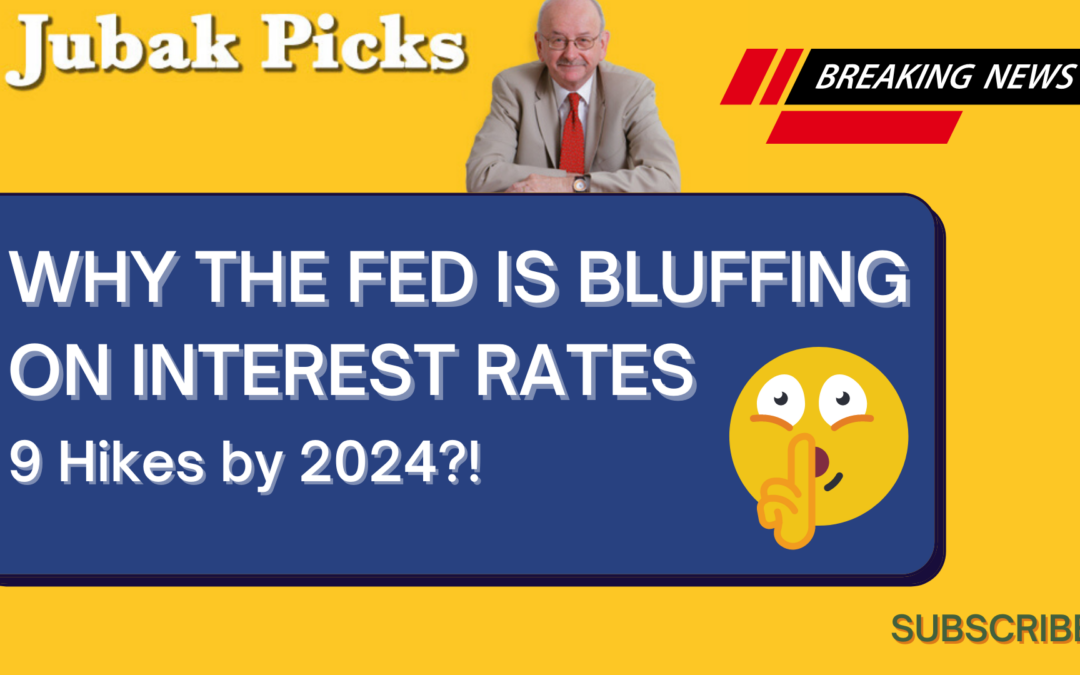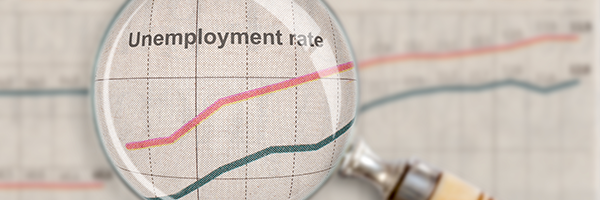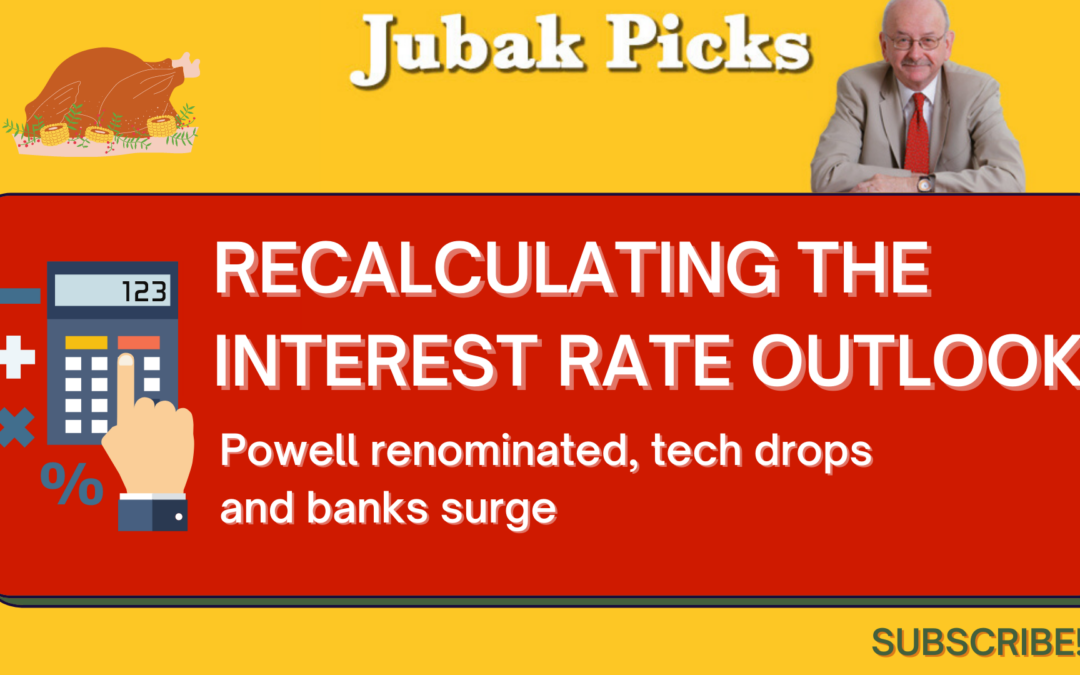
December 16, 2021 | Daily JAM, Mid Term |
Looking ahead at 2022, it’s not too hard to list the forces that will drive the financial markets. Putting those forces together and blocking out a schedule for their effects on the stock market. Well, that’s a lot harder. But let me try. Here’s my take on what’s ahead for 2022–Part 1 anyway

December 15, 2021 | Daily JAM, Morning Briefing, Short Term |
The saying is that stocks don’t have memories. They don’t know where they once traded and they don’t have any desire to rise or fall to where they once traded. On the other hand, investors do–have memories that is. They do think that stocks will trade back to former levels–when opportunity offers–and it takes a lot of break that conviction. Which is why trading patterns, the ones captured in technical analysis, persist for such long period. And if you needed evidence, just look at how stocks traded after the Federal Reserve’s interest rate pivot yesterday.

December 15, 2021 | Daily JAM, Short Term, Videos, Volatility |
I’m starting up my videos on JubakAM.com again–this time using YouTube as a platform. My eighty-first YouTube video “Why the Fed is bluffing on interest rates” went up today.

December 11, 2021 | Daily JAM, Short Term |
The Federal Reserve’s Open Market Committee meets on Wednesday, December 15, and that the central bank’s interest rate setting say something about the speed at which it will wind down its monthly purchases of Treasuries and mortgage-backed securities. We’re pretty sure, but we don’t know with absolute certainty, that the Fed will announce a speed up of that wind down that would see the process of ending all of the Fed’s monthly purchases a month two early. June, maybe. That could be a big deal because the financial markets are convinced that the Fed would have to end its purchases of Treasuries before beginning any interest rate increase in, say, the last quarter of 2022. I think, but I’m certainly not positive, that the markets won’t show much reaction to the news

December 10, 2021 | Daily JAM, Morning Briefing |
Stocks rose today, December 10, as a huge jump in CPI inflation exactly matched economists’ projections. As they say on the basketball court, “No surprise; no foul.” The Consumer Price Index (CPI) climbed at a 6.8% annual rate in November.

December 9, 2021 | Daily JAM, Morning Briefing |
Tomorrow’s inflation report–the Consumer Price Index (CPI) flavor–has the potential to end the recent uptick in stocks and send prices back down and volatility back up. Right now economists surveyed by Bloomberg are expecting a year over year increase in inflation of 6.8% in November.

December 4, 2021 | Daily JAM, Mid Term |
Expect the the debate to go on. Are we seeing a top for this extraordinary rally? Are stocks headed to their first correction since dinosaurs walked the earth? (Actually stocks had their last 10% correction in February 2020 but almost nobody remembers because it didn’t last very long and soon stocks were on their way to infinity and beyond.) And will this correction be led by technology stocks, the stars of the last rally? Or is the huge and very quick drop in technology stocks and the smaller but still significant fall in a wider index such as the Standard and Poor’s 500 merely a rotation from one sector into another? For the record, as of the close on Friday, December 3, the S&P 500 was down 3.47% from its November 24 high. The NASDAQ Composite, with its heavier weighting in technology, was down 6.05% from its November 11 high.

November 30, 2021 | Daily JAM, Morning Briefing |
Right now the stock and bond markets can’t decide if the Omicron Variant will crush the global economy badly enough to lead the Federal Reserve to delay its timetable for raising interest rates or if the U.S. economy is so strong and inflation so persistent that Jerome Powell and company will be pushed to accelerate the Fed’s tightening. Which makes Friday’s jobs report for November even more important than usual since it might provide the tipping data to send the Fed’s decision one way or the other. Right now economists at Argus forecast that the economy added 550,000 new jobs in November. That would be an increase from the 531,000 jobs created in October and from the 32,000 created in August.

November 30, 2021 | Daily JAM, Morning Briefing |
Federal Reserve Chair Jerome Powell retired the word “transitory” to describe stubbornly high inflation in testimony today in front of the Senate Banking Committee. And, Powell continued, the Fed might accelerate the pace at which it is winding down its purchase of Treasuries and mortgage-backed assets. “It is appropriate, I think, for us to discuss at our next meeting, which is in a couple of weeks, whether it will be appropriate to wrap up our purchases a few months earlier.” The Fed is currently scheduled to complete its asset-purchase program in mid-2022

November 23, 2021 | Daily JAM, Mid Term, Videos |
I’m starting up my videos on JubakAM.com again–this time using YouTube as a platform. My seventy-second YouTube video “Recalculating the interest rate outlook for 2022” went up today.

November 22, 2021 | Daily JAM, Morning Briefing |
This morning President Joe Biden announced that he will renominate Jerome Powell to another four-year term as chairman of the Federal Reserve. Wall Street sounds like it’s generally happy with the move–continuity is usually seen as good by the financial markets–although bond yields are up as of 2:30 p.m. this afternoon with the 10-year Treasury yield climbing to 1.62%, a gain of 7 basis points. That’s a reflection, in my opinion, of a little bond market disappointment that Biden didn’t nominate Lael Brainard to replace Powell, She was seen as more likely to hold interest rates lower for longer than Powell. Powell’s nomination faces opposition from progressive Democrats who don’t like the financial deregulation that has continued during his term or who don’t think the U.S. central has done enough on global warming. Powell also faces opposition from conservative Republicans because they believe the Fed should be moving faster to stomp on inflation. My view is a little different than either Democratic or Republican objections. I think that if Biden had been more confident of the economy recovery he would have nominated Brainard. That would have put a Biden stamp on the U.S. central bank.

November 15, 2021 | Daily JAM, Morning Briefing, Short Term |
With stocks trading at record highs, I’d argue that nothing is as important as what “news” is priced in–or not. If stocks have priced in all the likely good news, then there’s much less to drive prices higher–and much more expansive possibilities for drops on disappointments. If there’s likely good news that’s not yet priced in, then stocks have potential fuel to move high. And, on the other hand, if bad news is priced in and fails to materialize, then, hey, we’re going higher from here. And if bad news isn’t priced in, then current record prices aren’t sustainable.













